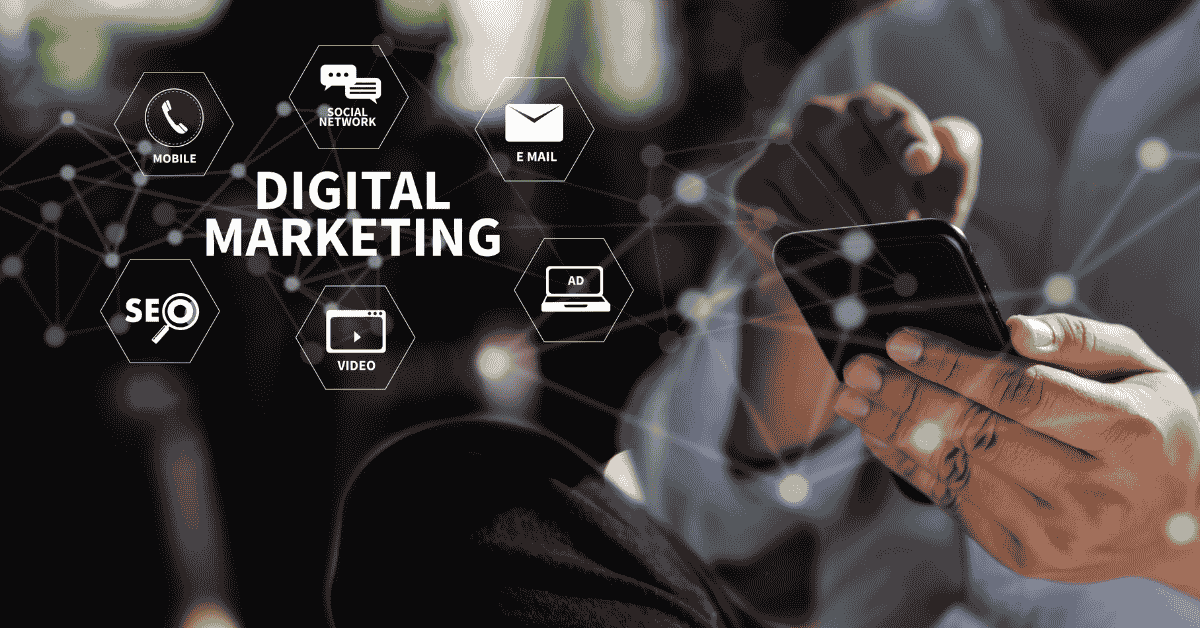
Small businesses often face challenges competing in a crowded market, especially against larger companies with bigger budgets. Digital marketing has emerged as a game-changer, leveling the playing field by providing cost-effective solutions that help small businesses reach their target audiences, build brand awareness, and increase sales. This article will explore how digital marketing helps small businesses, highlighting its advantages and benefits while offering actionable insights to harness its full potential.
Understanding Digital Marketing and Its Role in Small Business Growth
Digital marketing refers to the use of online channels and tools to promote products and services. For small businesses, it offers a strategic way to connect with potential customers without the need for massive advertising budgets.
Why Is Digital Marketing Important for Small Businesses?
Small businesses benefit from digital marketing by:
- Reaching a wider audience than traditional marketing methods.
- Using data-driven strategies to measure performance and adjust campaigns.
- Offering cost-effective solutions tailored to limited budgets.
By leveraging the internet and social media platforms, small businesses can establish their brand presence, engage with customers, and drive long-term growth.
Advantages of Digital Marketing for Small Businesses
1. Cost-Effective Advertising Solutions
Traditional marketing avenues, such as print or TV ads, can be prohibitively expensive for small businesses. Digital marketing offers cost-effective options like:
- Search Engine Optimization (SEO): Optimizing a website to rank higher on search engines organically.
- Social Media Marketing: Promoting products and services on platforms like Facebook, Instagram, and LinkedIn.
- Email Marketing: Engaging with customers directly through personalized email campaigns.
2. Enhanced Targeting and Personalization
Digital marketing allows businesses to target specific demographics, ensuring their message reaches the right people at the right time. For instance:
- Location-based targeting helps small businesses attract local customers.
- Behavioral targeting identifies potential customers based on their online activities and interests.
Personalized marketing not only improves engagement but also builds trust and loyalty among customers.
Real-Time Engagement with Customers
One of the greatest advantages of digital marketing is the ability to interact with customers in real-time. Small businesses can:
- Respond to customer inquiries via social media.
- Address concerns promptly, boosting customer satisfaction.
- Encourage feedback to improve products or services.
These interactions help small businesses foster a sense of community and build lasting relationships.
Benefits of Digital Marketing for Small Businesses
1. Improved Online Visibility
A strong online presence is critical in today’s digital-first world. Through techniques like SEO and content marketing, small businesses can rank higher on search engines, making it easier for potential customers to find them.
2. Higher Conversion Rates
Unlike traditional marketing, digital campaigns are trackable, allowing small businesses to monitor performance and optimize strategies for better results. This leads to higher conversion rates and more sales.
3. Scalability and Flexibility
Digital marketing campaigns can be scaled up or down depending on budget and goals. Small businesses can start small and expand their campaigns as they grow.
How to Implement a Successful Digital Marketing Strategy
Step 1: Define Your Goals
Clearly outline what you want to achieve through digital marketing, whether it’s increasing website traffic, generating leads, or boosting sales.
Step 2: Know Your Audience
Understand your target audience’s preferences, behaviors, and pain points. Use tools like Google Analytics and social media insights to gather data.
Step 3: Choose the Right Channels
Focus on platforms that align with your audience. For example:
- Use Instagram for visual products like fashion or food.
- Leverage LinkedIn for B2B marketing.
Harnessing the Power of SEO
SEO is one of the most powerful tools for small businesses. By optimizing their website for search engines, businesses can attract more organic traffic. Key SEO practices include:
- Conducting keyword research to target terms like “how digital marketing helps small businesses.”
- Publishing high-quality, informative content regularly.
- Optimizing website speed and mobile responsiveness.
Leveraging Social Media for Growth
Social media platforms are invaluable for small businesses to connect with their audience. Best practices include:
- Posting engaging content consistently.
- Using hashtags to increase visibility.
- Running targeted ad campaigns.
Overcoming Challenges in Digital Marketing
Small businesses often face obstacles such as limited budgets and lack of expertise. These challenges can be addressed by:
- Outsourcing digital marketing tasks to professionals.
- Using affordable tools like Canva for design and Hootsuite for scheduling posts.
- Staying updated on the latest trends and best practices.
Conclusion
Digital marketing has become an indispensable tool for small businesses aiming to compete in today’s competitive market. By leveraging cost-effective strategies like SEO, social media marketing, and email campaigns, small businesses can achieve sustainable growth and success.
At Optimize with Sanwal, we specialize in helping small businesses achieve their digital marketing goals. From SEO and email marketing to lead generation and CRM solutions, our services are tailored to meet your unique needs. Let us help you take your business to new heights.





Leave a Reply